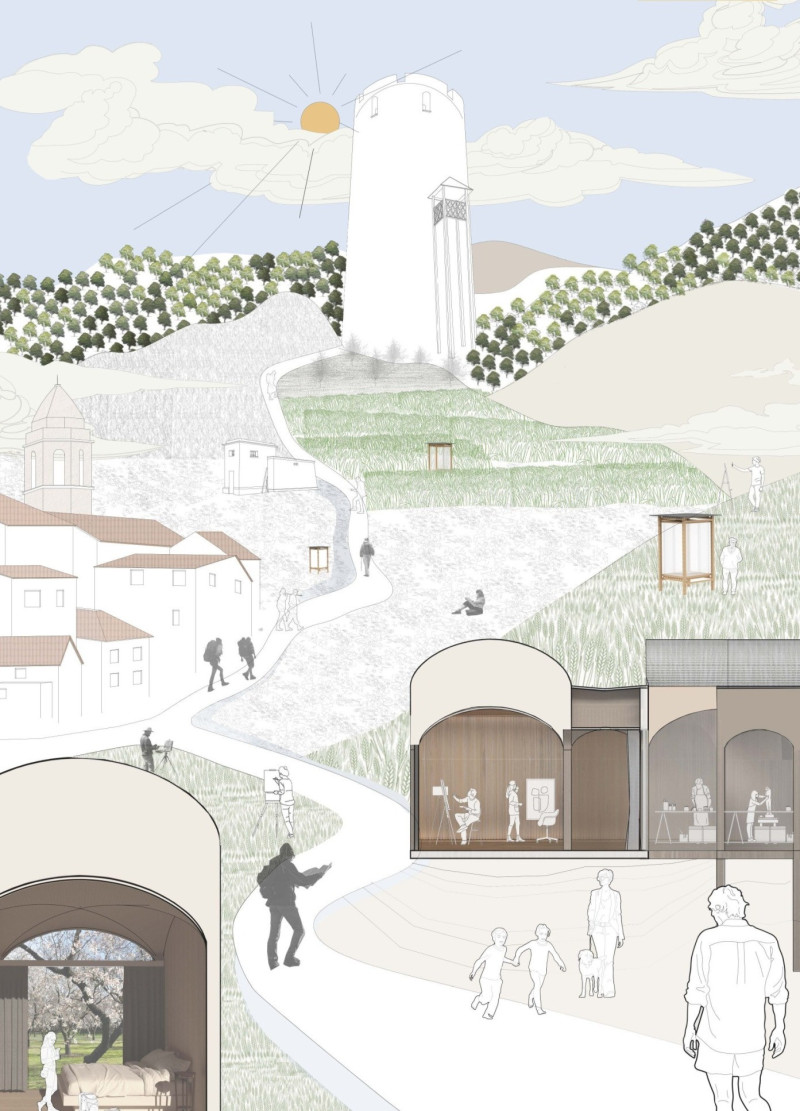5 key facts about this project
"Dispersing Seeds" is located at the Gaudi La Come Artist Residence in La Puebla de Fantova, Spain. The design aims to tackle rural depopulation while promoting community involvement and sustainability. It emphasizes multifunctional spaces that adapt to seasonal activities, fostering vibrant interactions among both local residents and visitors.
Agricultural Integration
The design includes an olive and almond mill which serves local residents and tourists. This facility symbolizes connection and new beginnings, reinforcing community ties while supporting traditional farming methods. By promoting the growth of olives and almonds, the project seeks to empower local agriculture, providing essential resources to nearby villages and enriching the region’s agricultural heritage.
Seasonal Use of Space
Adaptability is central to the design, allowing spaces to respond to seasonal changes. During summer, hostel pods accommodate travelers and foster tourism. In autumn, areas are dedicated to almond harvesting and processing. Winter brings communal dining spaces that encourage local gatherings, while spring focuses on artists’ residences and workshops, inviting creative interaction and adding vibrancy to the cultural landscape.
Water Management and Sustainability
Water management plays a crucial role in the project. Systems for efficient irrigation support the almond trees, showing a commitment to sustainability. These practices help enhance agricultural resilience, ensuring that vital resources are available for both the landscape and its inhabitants.
Material Choices
The design employs modular timber construction, offering flexibility and scalability. The materials chosen include timber battens, insulated timber sheets, and polycarbonate sheets. These selections contribute to thermal comfort and durability, ensuring the structures remain functional and harmonize with the surrounding environment.
The project culminates in a pilgrimage route that links various villages and significant landmarks, such as Fantova Castle. This pathway encourages movement and exploration, inviting a deeper connection to the local history and culture.






















































